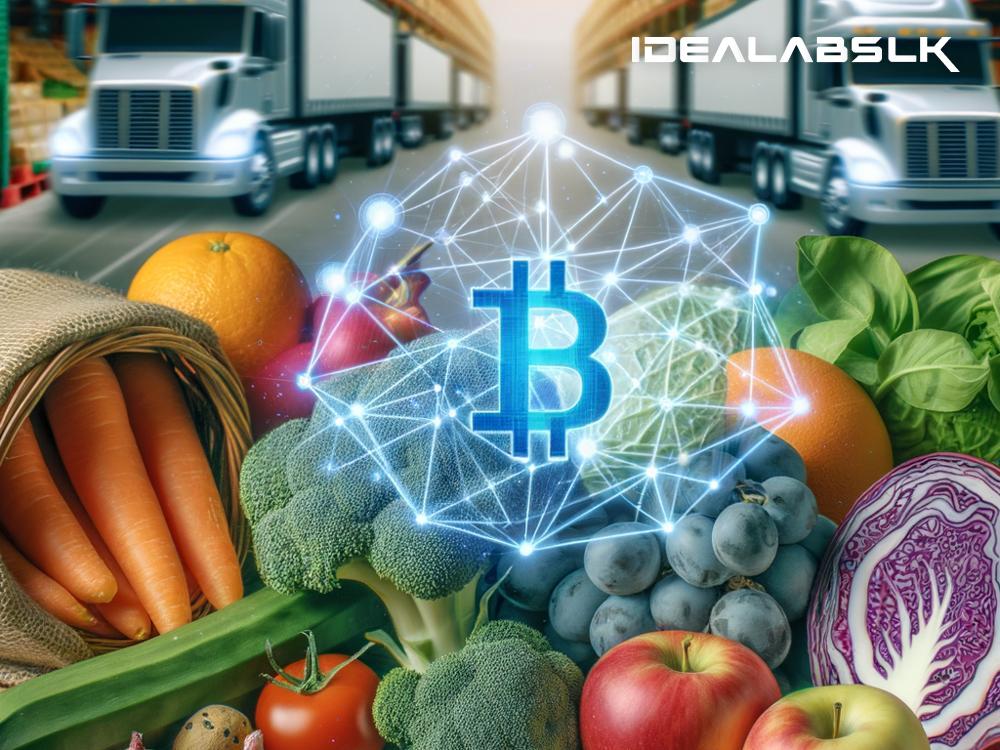Blockchain's Game-Changer Role in Slashing Food Supply Chain Costs
In today's fast-paced world, everyone's looking for ways to save time and money, and businesses are no exception. Especially in the food industry, where the distance from farm to fork can be vast and full of unexpected bumps, keeping costs down is a constant battle. That's where blockchain technology comes into play, acting like a superhero in the complex world of food supply chains. Let's dive into how this tech marvel is making waves in reducing costs and bringing a whole new level of trust and efficiency to our dinner tables.
Understanding Blockchain in a Nutshell
Before we venture into its role in the food supply chain, let's quickly grasp what blockchain is. Imagine it as a digital ledger or record book that's not just held by one person or company but spread out across numerous computers worldwide. Every transaction or change is recorded in this ledger, verified by multiple participants, and once it's there, it can't be altered or deleted. This creates a level of transparency and trust that traditional systems struggle to match.
Tackling the Food Supply Chain Jungle
The journey of food from farms to our forks is rarely straightforward. It zips through farmers, processors, distributors, and retailers before landing on our plates. Each step involves time, money, and a lot of back-and-forth communication. Unfortunately, this complex dance is also where costs start to mount up. Enter blockchain, ready to streamline this tangle of interactions in several key ways:
1. Enhanced Traceability
Ever wonder where your apple or steak came from? Blockchain makes it easier to trace the journey of food products throughout the entire supply chain. This isn't just good for satisfying your curiosity; it's crucial for quickly identifying and resolving issues like contamination sources. Faster reactions mean less waste, which in turn keeps costs down.
2. Reduced Paperwork and Errors
Imagine replacing heaps of paperwork and manual record-keeping with a sleek, digital process. Blockchain does just that. Since every transaction and verification is recorded digitally and automatically, the opportunity for human error shrinks dramatically. This efficiency not only saves time but also cuts administrative costs, which is great news for everyone, from farmers to consumers.
3. Improved Food Safety and Quality
Blockchain's real-time tracking capabilities don't just speed things up; they also help ensure that food products meet safety and quality standards. By monitoring conditions like temperature or transportation methods more closely, companies can prevent spoilage and contamination, reducing the amount of food that gets tossed. Less waste means lower costs and better environmental outcomes.
4. Faster Payment Processes
Paying all the parties involved in the food supply chain can be slow and cumbersome, but blockchain can settle transactions in a blink. This rapid-fire payment system keeps cash flowing smoothly, reduces financial bottlenecks, and ultimately lowers transaction costs. Happier wallets across the board lead to savings that can be passed on to consumers.
5. Boosted Consumer Confidence
In our information-hungry age, consumers are demanding more transparency about the products they buy and consume. Blockchain's ability to provide a clear, tamper-proof record of a product's journey from farm to table not only builds trust but also can lead to increased brand loyalty and potentially higher sales. Contented consumers are willing to pay a premium for products they trust, which can offset costs and boost profits.
A Future Served With Efficiency and Savings
While the adoption of blockchain in the food supply chain is still blossoming, its potential to reshape the industry is immense. By enhancing traceability, reducing administrative burdens, ensuring food safety, speeding up transactions, and bolstering consumer confidence, blockchain technology offers a promising path to significant cost reductions. These savings can then ripple through the entire food supply, making healthy, quality food more accessible and affordable for everyone.
The Blockchain Buffet Awaits
As we peer into the future, it's clear that blockchain is cooking up a storm in the food industry. It's not just about cutting costs; it's about creating a more transparent, efficient, and trustworthy food supply chain. So, the next time you bite into your favorite meal, remember that blockchain might have played a part in bringing it to your table. Welcome to the future of food, where technology and taste meet on a plate of reduced costs and elevated trust.

